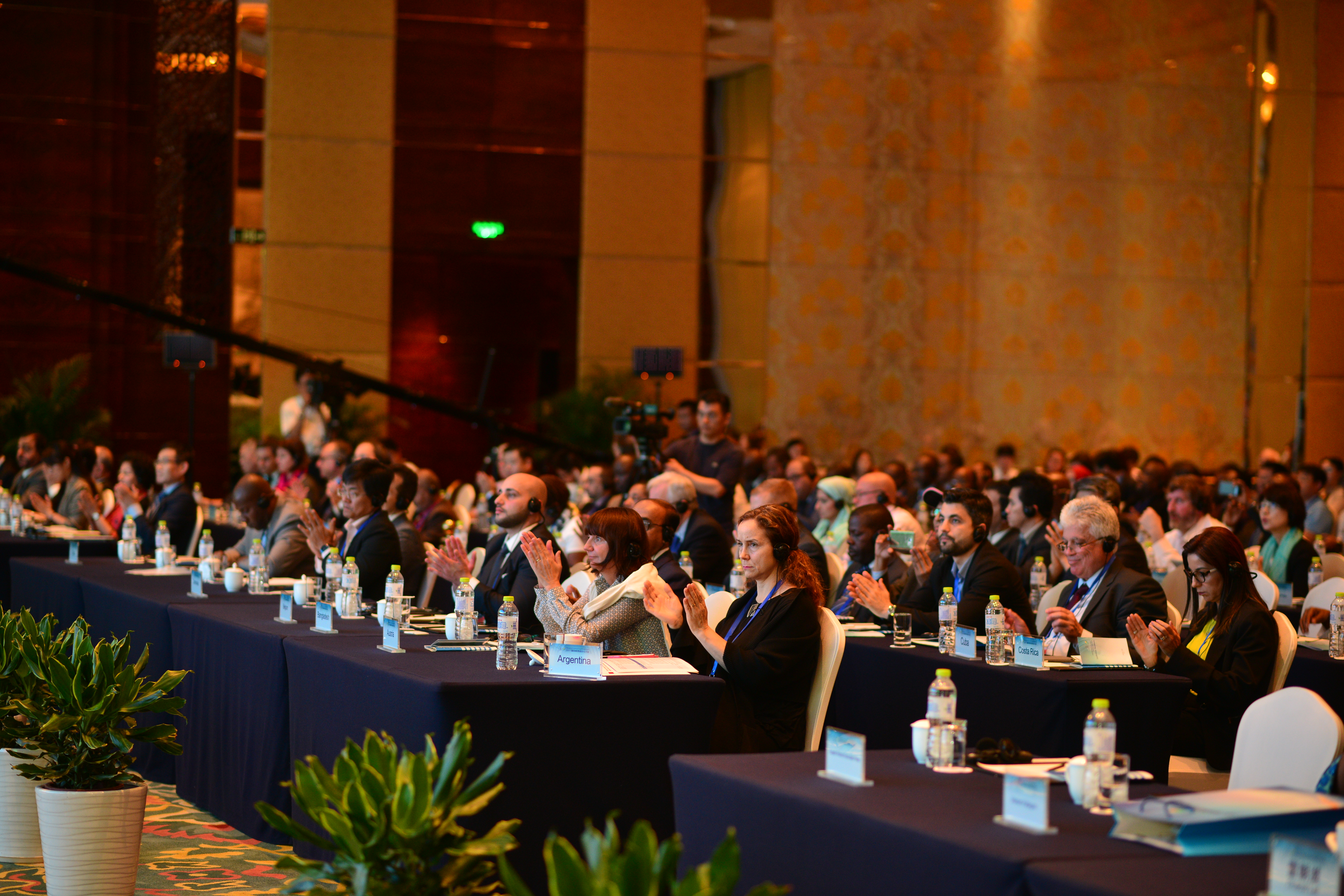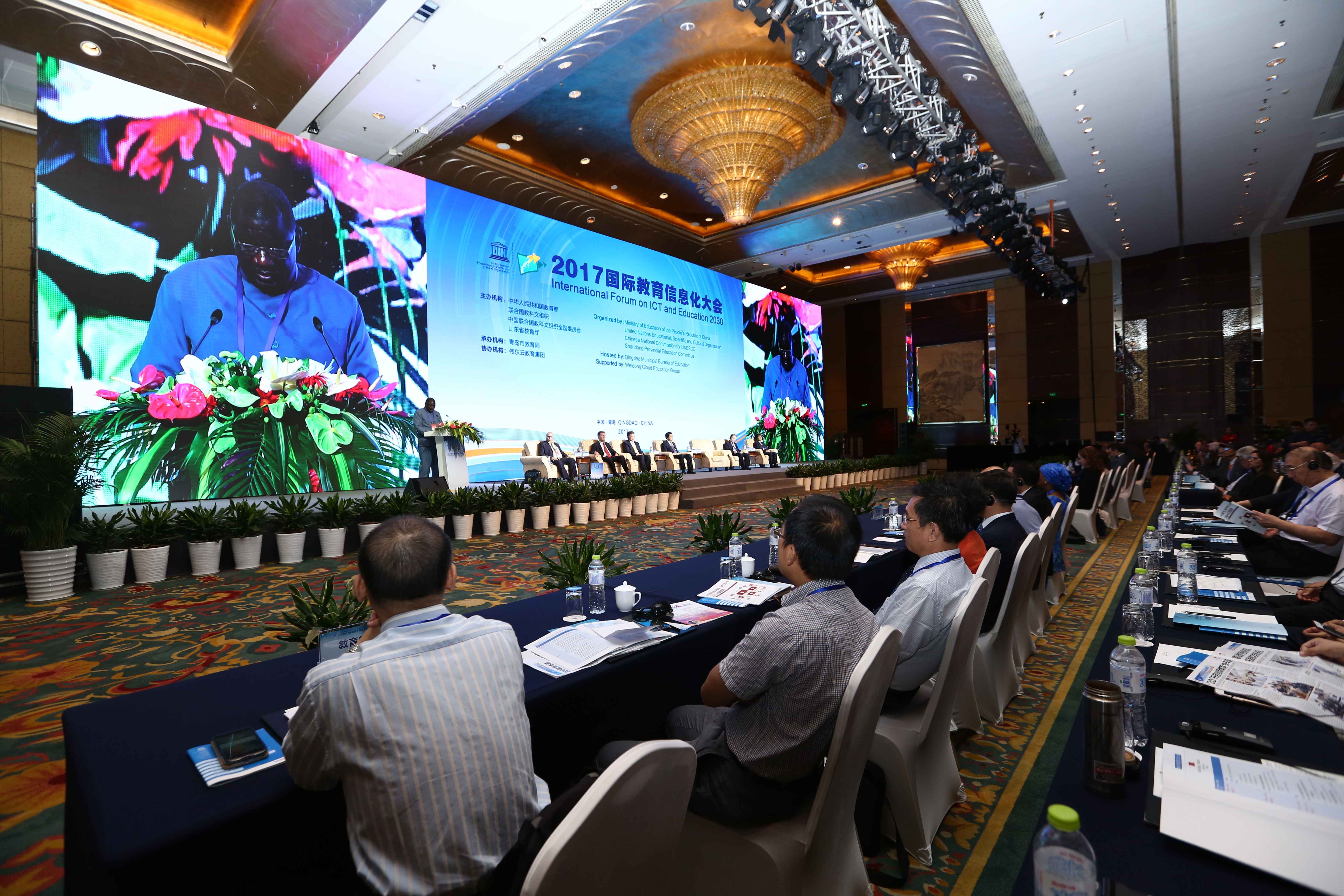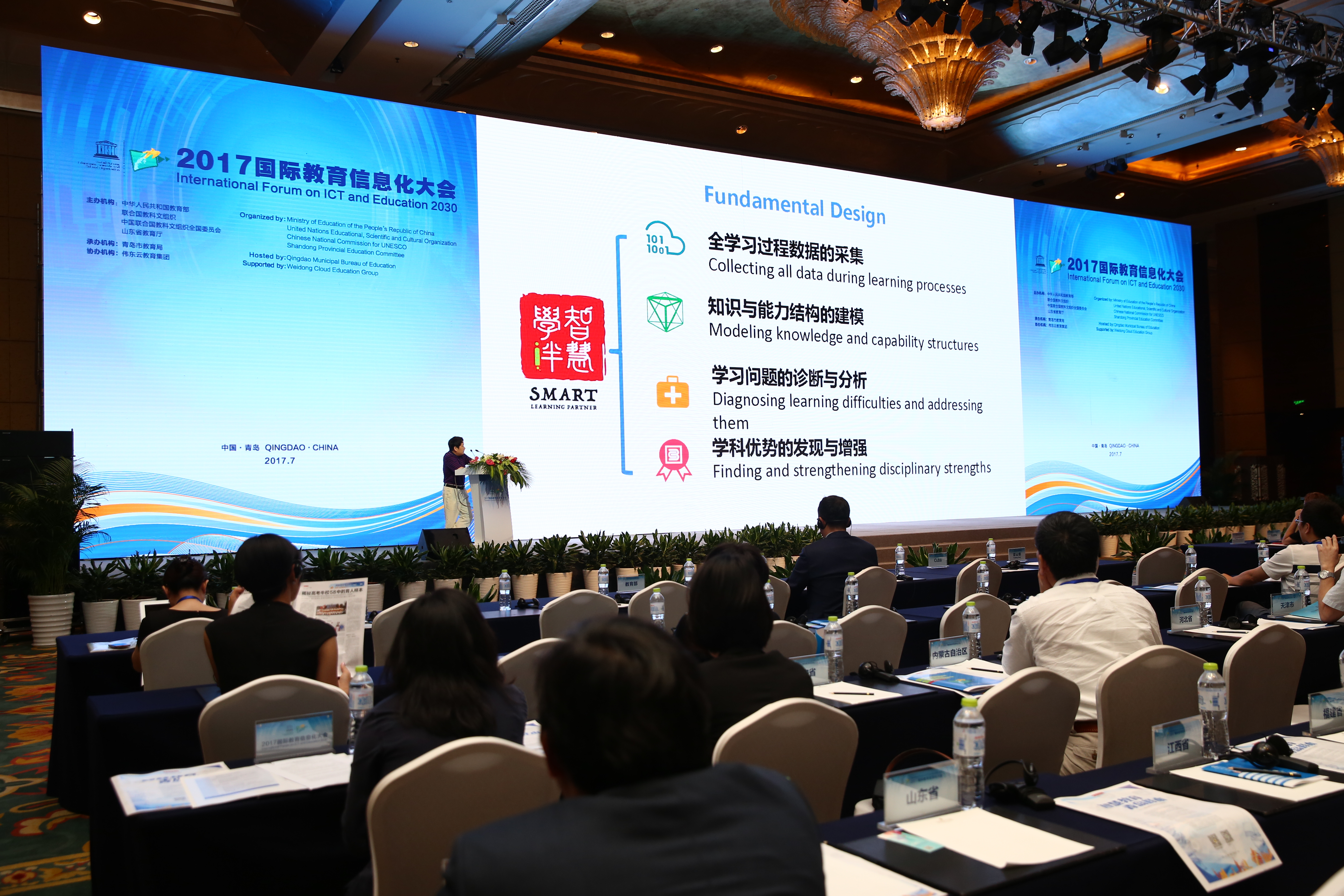
ICT is widening a new horizon of opportunities to take forward Sustainable Development Goal (SDG 4), to ensure inclusive and equitable quality education and promote lifelong learning opportunities for all, it’s imperative to convene stakeholders again to review the emerging digital innovations and exciting best practices that could be leveraged at scale to advance the progress toward SDG 4. President of the 38th session of the General Conference of UNESCO, Mr Stanley Mutumba Simataa, Chairperson of the UNESCO Executive Board, Mr Michael Worbs, Vice Minister of Education for China, Mr Zhanyuan Du, Vice Minister of Education for Cuba, Mr Eugenio Ramón González Pérez, Secretary-General of Chinese National Commission for UNESCO, Mr Yue Du and Mayor of Qingdao City Fanli Meng attended the ceremony.

Mr Stanley Mutumba Simataa
The important role played by ICT in taking forward the Education 2030 agenda was reiterated during the opening ceremony by Mr Stanley Mutumba Simataa who said that the power of ICT has attracted worldwide attention, and its growth in the near future will be multiple. The use of ICT in education enhances the sharing of knowledge, obtaining of information, quality learning and efficient service.

Professor Shengquan YU
Professor Shengquan YU stated in Big Data Based Learning Management System keynote speech that traditional data shows the performance of a group of students, but educational big data focuses more on each student’s performance. In order to maximize the use of big data to achieve better understanding and supporting for each student, Advanced Innovation Center for Future Education (AICFE) developed a big data based learning management system—Smart Learning Partner (SLP) and it has been used in Tongzhou District, Beijing. By leaning on SLP, students will benefit from individualized facilitation, including visualization of knowledge and skills structure, diagnostic reports of learning problems, recommendation of learning materials, one-on-one online tutoring of selected teachers, college application, career planning, monitoring of well-being and fitness, etc. Teachers can utilize SLP to know students’ personal traits to teach more effectively. Administrators can manage more effectively. Professor Yu also introduced Beijing Education Quality Map, which publishes reviews about education providers, such as schools and companies. Local authorities can use this map as a reference to manage and allocate resources, parents can use SLP and the map to know their children’s performance in school and choose education providers and learning materials wisely.
AICFE is seizing digital opportunities to achieve inclusive and equitable quality education and promote lifelong learning opportunities for all. The intelligent tutoring or learning systems, empowered by artificial intelligence and big data analytics, can also automatically diagnose students’ learning styles and problems, providing teachers and students with advices on academic progression and career development. International Forum on ICT and Education 2030 in Qingdao reaffirmed the commitments made in the ‘Qingdao Declaration’ and reinforced the inter-sectoral and multi-stakeholder platform. Attendees shared national policies and programs that aim to capture digital innovations, explored the digital innovations and best practices that could be scaled to enable new school models and transform the education provision.